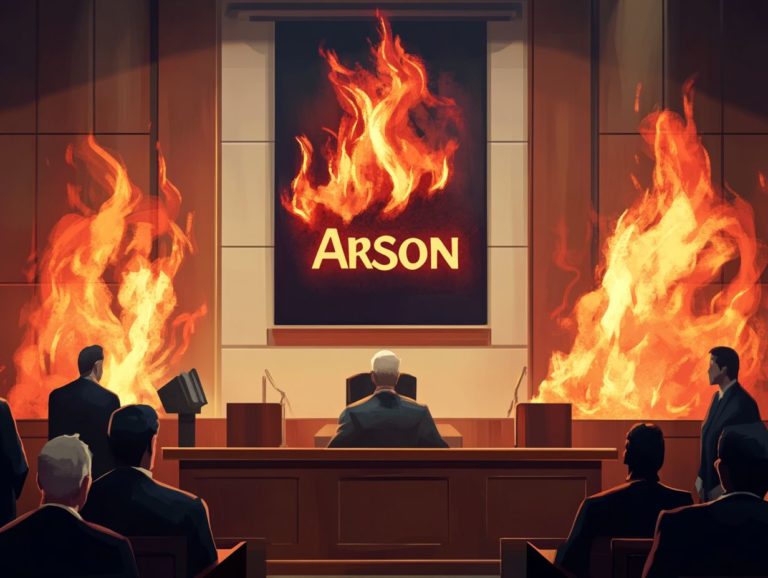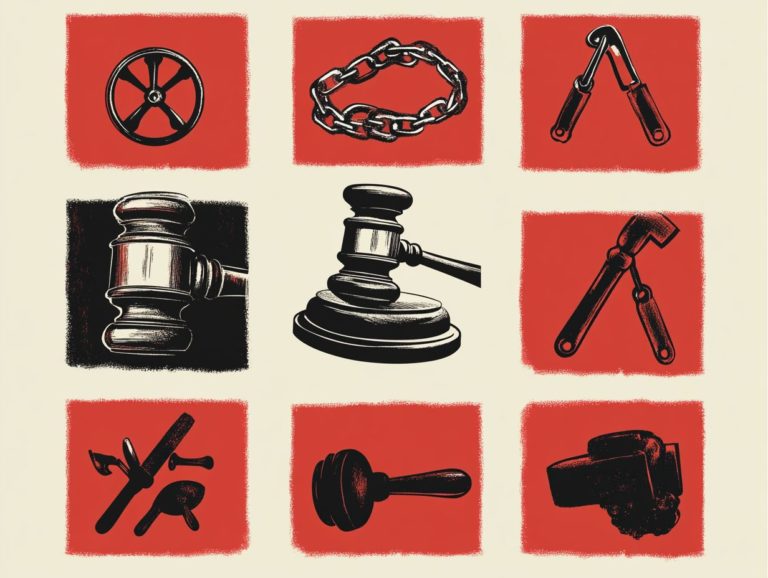Understanding Misdemeanors: Definitions and Examples
Misdemeanors may often be eclipsed by their more serious counterparts, felonies, but they hold considerable significance within our legal system.
Understanding what qualifies as a misdemeanor, distinguishing between misdemeanors and felonies, and recognizing the various types can illuminate these charges for you.
This guide will take you through the spectrum of misdemeanors, their potential repercussions, and effective strategies for navigating a misdemeanor charge. Whether you’re aiming to comprehend the legal landscape or seeking to sidestep a charge entirely, this resource offers invaluable insights.
Contents
Key Takeaways:
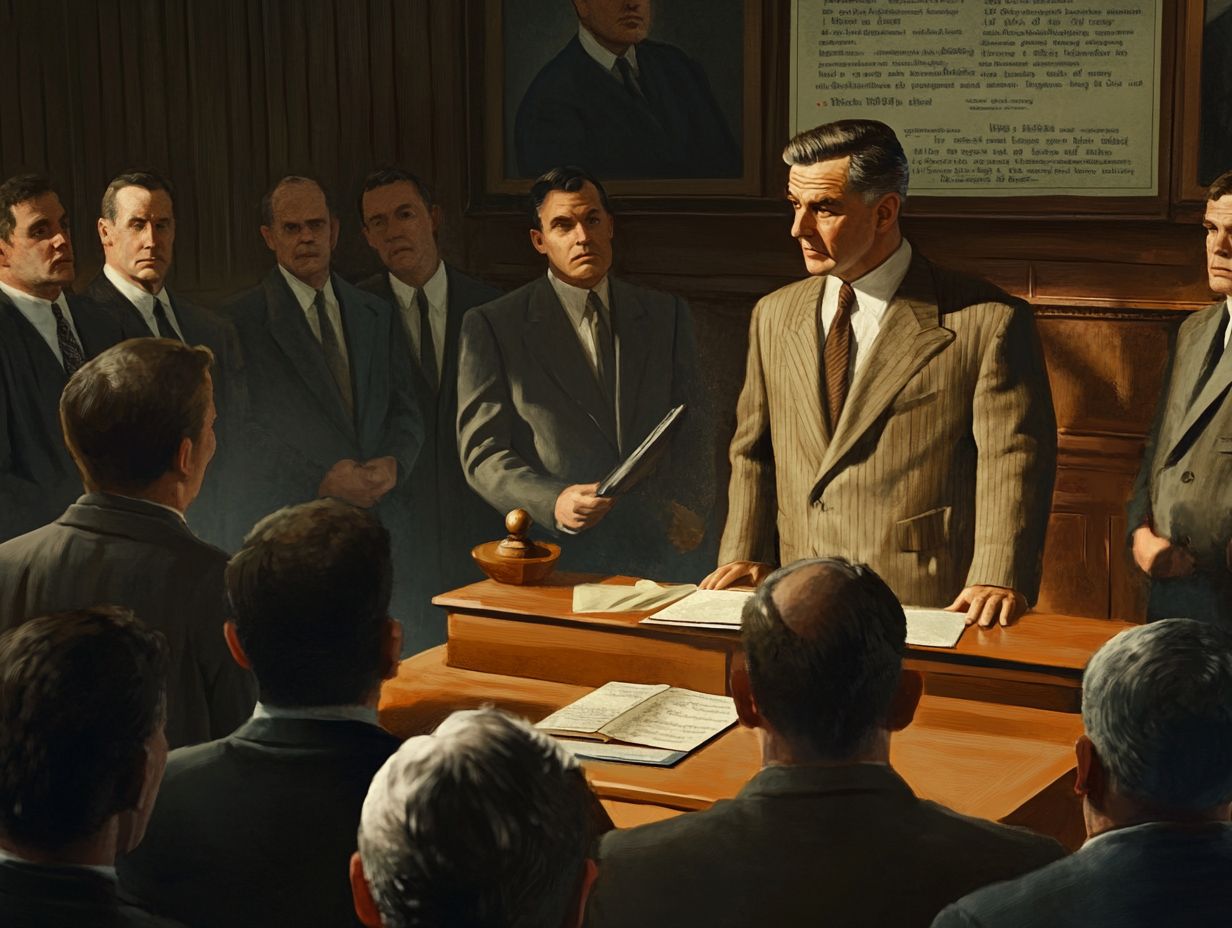
Misdemeanors are less serious crimes punishable by fines and/or up to a year in jail.
They are less serious than felonies and are grouped into categories based on severity.
Examples of misdemeanors include petty theft, disorderly conduct, and simple assault.
Penalties for misdemeanors can include fines, community service, probation, and jail time.
A misdemeanor conviction can also have long-term consequences on a person’s criminal record.
To deal with a misdemeanor charge, it is important to understand the legal options and processes available.
It is crucial to know how to prevent misdemeanors by following laws and avoiding risky behaviors.
Defining Misdemeanors
Misdemeanors are considered lesser criminal offenses when stacked against felonies, which carry more severe legal repercussions under state law.
In the United States, these offenses can impose a range of penalties on you, such as fines, community service, or even a potential jail sentence. Understanding the nuances of misdemeanors is essential for anyone engaging with the legal system, especially in states like New Jersey, where specific legal statutes delineate the classification and prosecution of these offenses.
A good criminal defense attorney can help you understand your rights better and guide you through the complexities of these charges.
What are Misdemeanors?
Misdemeanors are the less daunting cousins of criminal charges, typically carrying lighter penalties than felonies.
You might encounter fines, community service, or brief jail time as potential consequences.
These offenses are classified into categories like ‘A,’ ‘B,’ and ‘C misdemeanors,’ each reflecting different levels of severity and penalties.
- For instance, an ‘A misdemeanor’ could involve charges such as theft or assault, with the potential for up to a year in jail and hefty fines.
- A ‘B misdemeanor’ usually addresses less serious offenses, like public intoxication, resulting in shorter jail sentences or smaller fines.
- Then there s the ‘C misdemeanor,’ which often relates to minor violations, such as traffic infractions.
Grasping the concept of a ‘first offense’ is essential, as it can lead to more lenient sentences or alternative measures aimed at rehabilitation rather than punishment. This understanding is particularly beneficial for those navigating the legal system for the first time.
Differences from Felonies
Misdemeanors and felonies differ primarily in severity and penalties.
Felonies often bring about harsher consequences, which can include longer prison terms or even capital punishment. Misdemeanors, on the other hand, are considered less severe offenses. These might include petty theft or disorderly conduct and typically lead to shorter jail sentences, usually less than a year, often served in local jails.
In contrast, felonies encompass serious crimes such as murder or grand theft, which can result in sentences ranging from one year to life imprisonment in a state prison.
If you find yourself convicted of a felony, the repercussions extend beyond incarceration. You may face hefty fines, probation, and the potential loss of certain civil rights, such as voting or gun ownership. These distinctions highlight the legal system’s focus on the gravity of the offense and its potential impact on society.
Types of Misdemeanors
Misdemeanors are categorized into distinct classes: A, B, and C.
Each classification reflects differing levels of severity and the potential repercussions that accompany them.
Overview of Different Classes
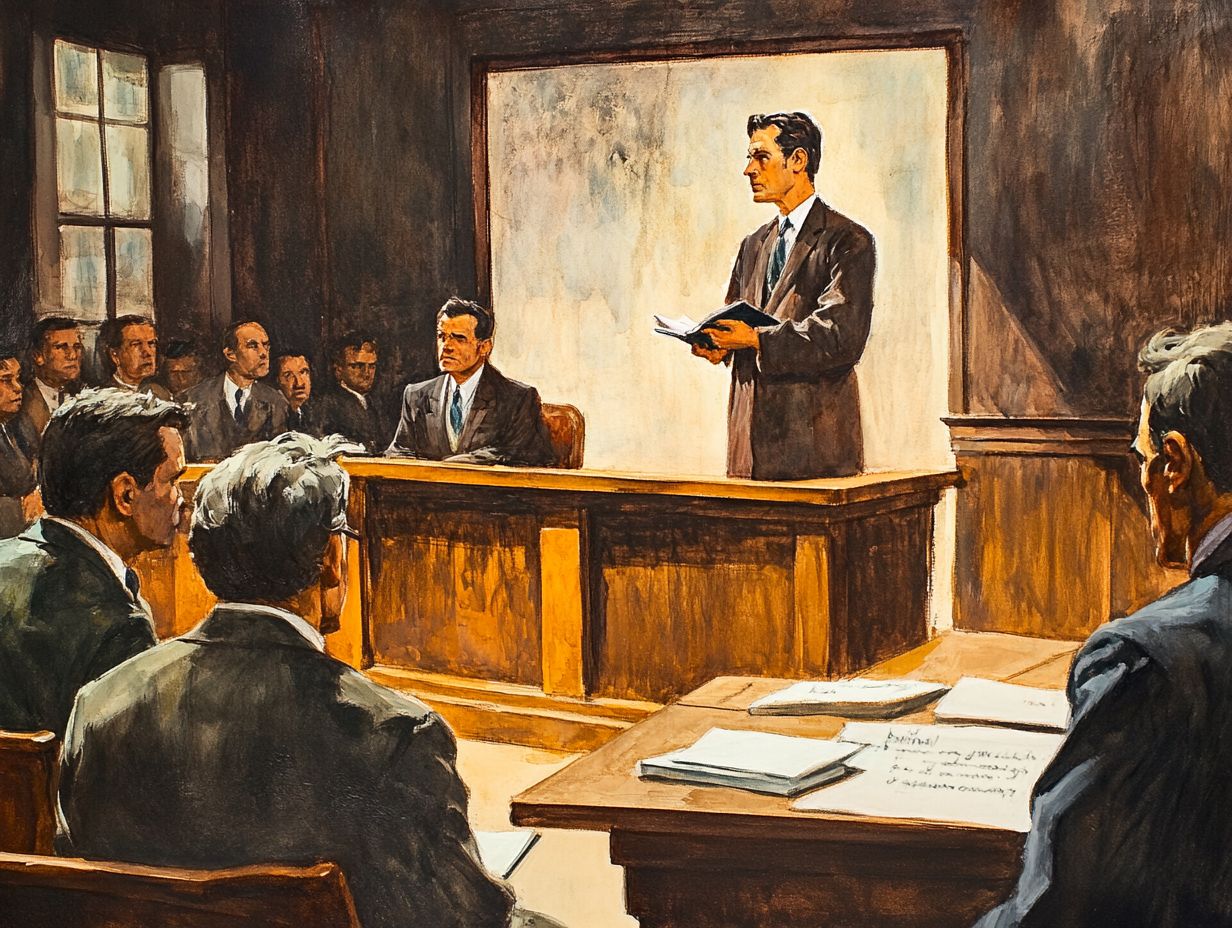
Different classes of misdemeanors, such as A, B, and C, come with varying penalties and definitions. A misdemeanors are the most serious, while C misdemeanors are the least significant.
A misdemeanors often involve serious actions like assault or theft of considerable value. These can lead to a sentence of up to one year in jail or hefty fines.
On the other hand, B misdemeanors might include minor assault or DUI without severe repercussions. Typically, they result in lesser penalties of up to six months of incarceration.
C misdemeanors usually involve minor infractions, such as petty theft. These can lead to maximum fines without any jail time. It s crucial to understand that gross misdemeanors, which are more severe offenses, elevate the stakes significantly.
Gross misdemeanors introduce harsher penalties and extended jail time, which can profoundly affect an offender’s future opportunities.
Examples of Common Misdemeanors
Have you ever wondered what common misdemeanors might look like? Examples include offenses such as drunk driving, shoplifting, and other minor crimes that can lead to legal action.
Take drunk driving, for example. It not only endangers public safety but could also result in fines, license suspension, or even jail time, especially if you have prior offenses.
Shoplifting typically involves the theft of goods valued below a certain threshold. This can lead to penalties like restitution and community service.
Then there are offenses like disorderly conduct and vandalism. Both reflect societal norms and legal statutes designed to maintain order. Understanding these classifications within the broader context of criminal offenses is essential. They can pave the way for more serious charges if repeated or aggravated.
Consequences of Misdemeanors
The consequences of misdemeanors can vary widely. They range from fines and community service to the possibility of jail time.
These repercussions can significantly affect not only an individual s criminal record but also their future opportunities.
Potential Penalties
Penalties for misdemeanors often include:
- Fines
- Community service
- Probation
- Possibility of jail time
The severity of penalties depends on how serious the offense is and the state laws involved. You ll find that these penalties can differ widely from one jurisdiction to another, shaped by local statutes.
For example, if you’re a first-time offender caught up in a minor theft in one state, you might be looking at a fine of up to $1,000 and a few days of community service. In contrast, another state could impose a maximum jail sentence of six months for a similar infraction.
Some jurisdictions may also provide alternative sentencing programs that focus on rehabilitation, particularly for non-violent crimes. By grasping these differences in penalty structures, you can better navigate the potential consequences of misdemeanor charges.
Impact on Criminal Record
A misdemeanor conviction can leave a lasting mark on your criminal record. This can affect your employment opportunities and various facets of your life.
The consequences stretch far beyond the initial judgment, influencing personal relationships and even your housing options.
Many employers conduct background checks. Even a minor offense could disqualify you from a position, particularly in sensitive fields like education or healthcare.
Those with such convictions might struggle to secure loans or find suitable rental accommodations. Recognizing these implications highlights the crucial importance of having legal counsel to navigate options like expungement or sealing.
Consider a case where an individual successfully expunged their misdemeanor. This enabled them to attain a promotion that once felt unattainable.
Dealing with a Misdemeanor Charge
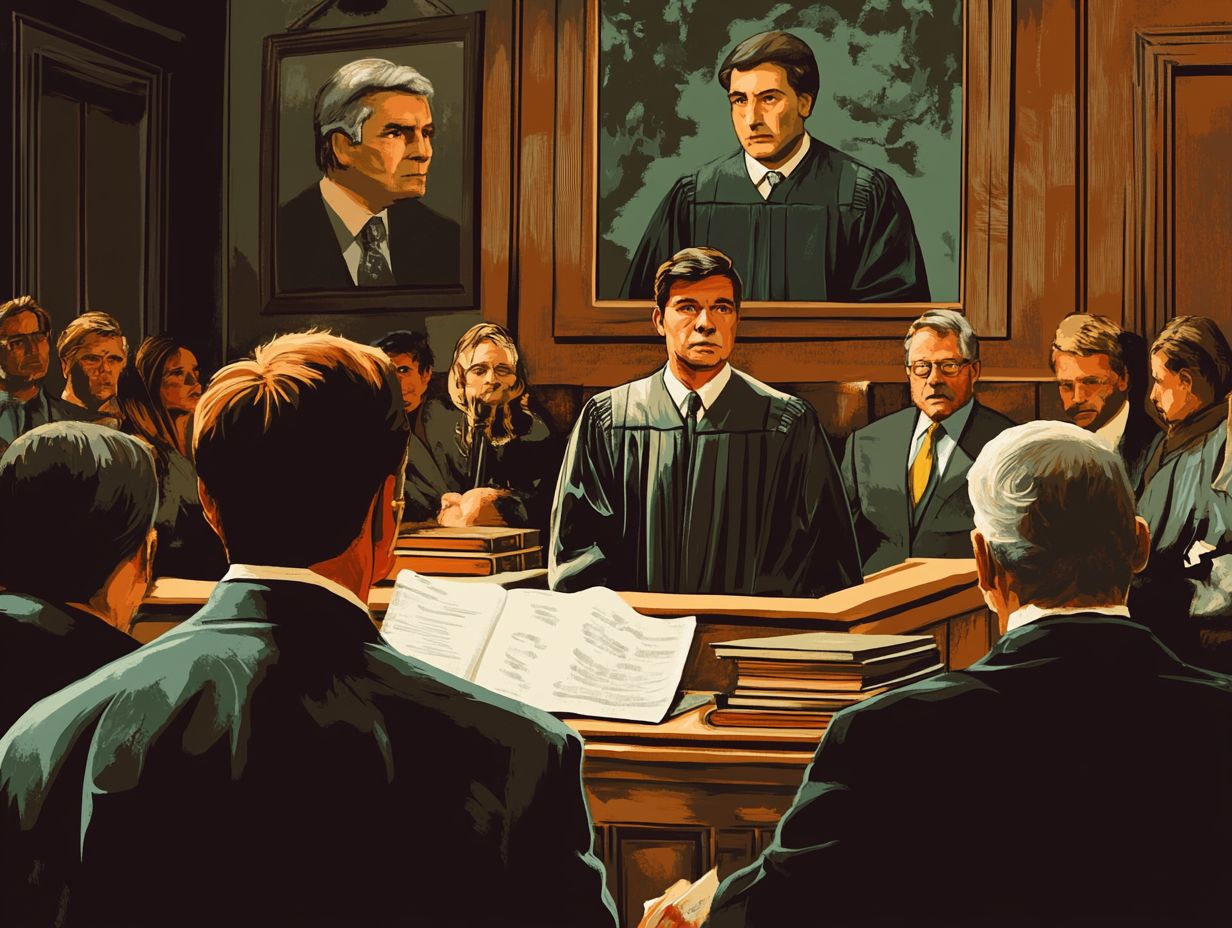
Navigating a misdemeanor charge can feel overwhelming. However, grasping your rights and the intricacies of the legal process can significantly enhance your prospects for a positive resolution.
Understanding your rights can be your first step towards regaining control of your future.
Legal Options and Processes
When facing a minor crime charge, various legal options open up before you. These include negotiation, trial, or plea agreements, all of which can significantly shape the outcome of your case.
Deciding on the right course of action depends on your specific situation and the guidance you receive from an experienced criminal defense lawyer. These experts are essential in evaluating your circumstances, gathering evidence, and crafting a strategy that aligns with your best interests.
They often engage in plea negotiations with the prosecution, potentially leading to reduced charges or lighter penalties. The prosecution process can vary dramatically; for instance, in recent cases, defendants successfully negotiated minor fines instead of jail time thanks to effective communication and savvy bargaining tactics.
Knowing your legal options can dramatically change your life when it comes to resolving a minor crime charge.
Preventing Misdemeanors
Preventing minor crimes requires a deep understanding of common pitfalls that can lead to criminal charges, such as recklessness or carelessness in daily activities.
By being aware of these potential missteps, you can navigate your life with greater caution and mindfulness, ultimately safeguarding yourself from unintended legal consequences.
Tips for Avoiding Criminal Charges
To steer clear of criminal charges, embrace responsible behavior, adhere to the law, and consider community service as a proactive means of mitigating potential legal issues.
Engaging in community service not only fosters a sense of belonging but also deepens your understanding of societal norms and legal expectations.
Volunteering allows you to develop essential skills and establish networks that encourage positive interactions while steering you away from unlawful behavior. Educating yourself about the legal system enables you to make informed decisions, equipping you with the knowledge necessary to navigate challenging situations.
Participating in local programs aids your personal growth and strengthens community bonds, ultimately fostering a safer environment for everyone involved.
Frequently Asked Questions
What is a misdemeanor?
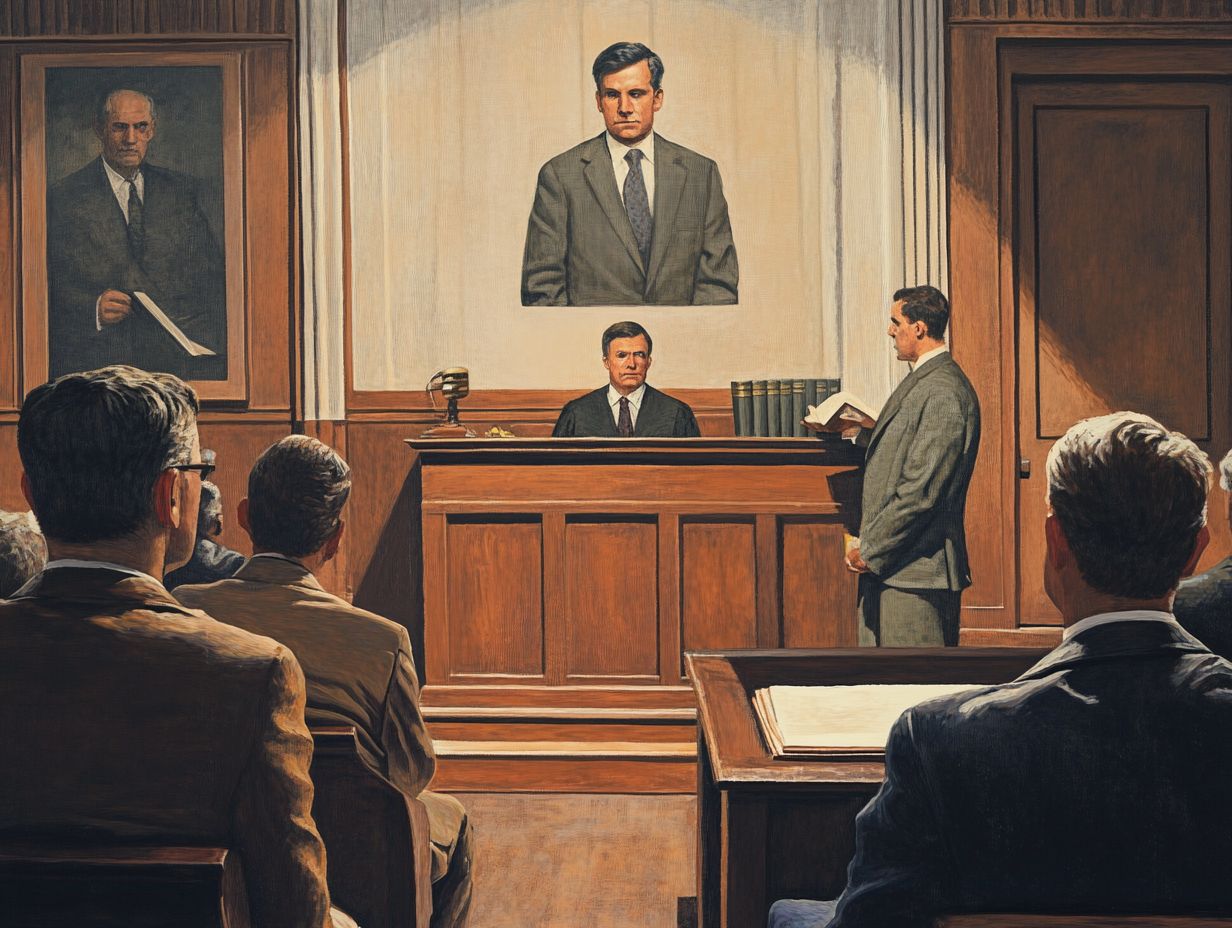
A misdemeanor is a type of minor crime that is considered less serious than a felony. It typically carries a punishment of up to one year in jail and/or a fine.
What are some examples of misdemeanors?
Common examples of misdemeanors include public intoxication, disorderly conduct, petty theft, and simple assault.
How are misdemeanors different from felonies?
Misdemeanors are generally considered less serious crimes than felonies, which typically carry a punishment of more than one year in prison. Misdemeanors are also often associated with less severe consequences and may not necessarily result in a criminal record.
Can misdemeanors result in jail time?
Yes, misdemeanors can result in jail time, but typically for a shorter duration than felonies. The specific punishment for a misdemeanor will depend on the severity of the offense and the defendant’s criminal history.
What is the process for being charged with a misdemeanor?
The process for being charged with a misdemeanor varies by state but generally follows these steps: arrest, booking, arraignment, pretrial hearings, trial, and sentencing. It is important to seek legal counsel if you are facing misdemeanor charges.
What are the potential consequences for a misdemeanor conviction?
Consequences may include jail time, fines, probation, community service, and a criminal record. These consequences can vary depending on the severity of the offense and the individual’s criminal history.
Learn more about your rights!




